FAQs
Frequently Asked Questions
Q. Why is a gymnasium needed?
A. First and foremost, physical education classes are required by the Minnesota Department of Education. Madelia students use the gymnasium and weight room for classes but space is limited. The gymnasium at the high school is the only regulation gym in the district, restricting the number of practices, activities, and events we can schedule. Currently, gyms cannot meet the demand for the number of activities being requested. This project would build an additional competition gymnasium and fitness center, allowing the district to hold more school and community events than our current facility.
Q. Will CTE be expanded?
Yes. If the referendum is approved, the school district’s plan is to update and renovate its Career and Technical Education (CTE) facilities—including the Tech Ed (Shop), Agriculture, and Business classrooms. These changes will support the expansion of hands-on learning opportunities and better prepare students for careers in high-demand fields.
Q. Didn’t you receive money from the state legislature? Why do you need more?
A: The state of Minnesota made important new investments in preK-12 schools during the 2023 legislative session, but those investments only helped Madelia Schools and other school districts partly catch up from more than a decade of funding schools lower than the rate of inflation. The investments were welcome, but were intended to help schools like Madelia with its operations, not with facility updates.
Q. Does farm property receive some tax relief?
A: Yes, for decades, farm families paid school operating levies on 1 acre of property that included the house, but paid school bond levies on all property. In 2017, the Minnesota Legislature approved a 40 percent tax credit for farm land school bond taxes. In 2019, the legislature approved higher tax credits to be phased in over time… with a cap of 70 percent in 2023 and thereafter.
In Madelia, the proposed bond project will receive aid from the School Building Bond Agricultural Tax Credit. This credit provides agricultural property owners a credit for school district debt service. This is an automatic reduction of property taxes paid. For this referendum, the state of Minnesota will pay for approximately $14 million of the bond amount because of the School Building Bond Agricultural Tax Credit for agricultural property.
Q: Why is this an urgent need?
A: Student learning is impacted by failing school infrastructure. Repair and maintenance costs are significantly higher than other school districts due to the age of equipment and facilities. The costs divert resources from the general fund and classroom learning.
Tax-related questions
Q: What is the difference between an operating levy and a building bond referendum?
A: Levies are for learning, bonds are for building. When communities support an operating levy, they are providing the district general funds to use for teachers’ salaries, textbooks, co-curricular programs, transportation, computers, utilities and the general operation of the district.
On the other hand, a bond referendum provides districts dollars to make improvements to facilities and building infrastructure only. For example, bonds can be used for major construction such as renovation, building an addition, building new schools or for general building projects such as addressing deferred maintenance and ventilation deficiencies. Bonds, however, cannot be used to hire teachers, buy textbooks, or for the operation of the district such as utilities.
Q. Can I deduct the taxes paid on my State and Federal Income Taxes?
A. If you itemize deductions for federal income taxes, you may deduct all property taxes paid.
Value of schools in community
Q. How do schools impact the community?
A: According to the National Bureau of Economic Research, there is a definite correlation between school expenditures and home values in any given neighborhood. A report titled, “Using Market Valuation to Assess Public School Spending,” found that for every dollar spent on public schools in a community, home values increased $20. These findings indicate that additional school expenditures may benefit everyone in the community, whether or not those residents actually have children in the local public school system.
Q: Does increasing funding for schools have any effect on academic outcomes?
A: The most rigorous research shows that, as scholars C. Kirabo Jacson and Claudia Persico put it, “there is a strong causal relationship between increased school spending and student achievement.” To read the scholar’s review of that research, please visit https://onlinelibrary.wiley.com/doi/epdf/10.1002/pam.22520.
Q: I don't have kids in school. Why should I care about this?
A: Strong schools help support a strong and vibrant community. Local community and business leaders are active in our schools and will help guide future decisions. We are all dependent upon the outcomes of all schools, and Madelia is no exception. We must educate the next generation to sustain our community.
Referendum Timing
Q: Why is this an urgent need?
A: Student learning is impacted by failing school infrastructure. Repair and maintenance costs are significantly higher than other school districts due to the age of equipment and facilities. The costs divert resources from the general fund and classroom learning.


